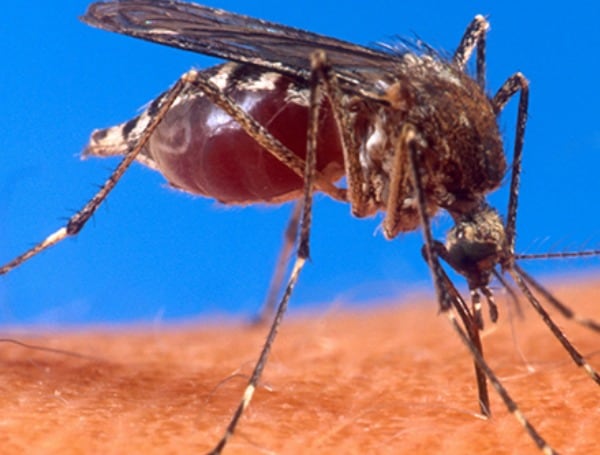By: Lourdes Mederos VERO BEACH, Fla. – Scientists at University of Florida Institute of Food and Agricultural Sciences are one step closer to lear
By: Lourdes Mederos
VERO BEACH, Fla. – Scientists at University of Florida Institute of Food and Agricultural Sciences are one step closer to learning the factors that ultimately lead to characteristic differences in mosquito offspring – a key takeaway in the make-up of mosquito species and a critical finding in the continued research of mosquito-borne illnesses.
“There are greater than 3,000 mosquito species around the world, and they are the most dangerous animal on the planet,” said Barry Alto, a UF/IFAS associate professor of entomology at the Florida Medical Entomology Laboratory and a co-author on a new study. “The reason is because they cause human illnesses and deaths attributable to the pathogens they transmit ranging from malaria and filarial parasites to viruses.”
In the latest study, “Paternal and maternal effects in a mosquito: A bridge for life history in transition” published in the Journal of Insect Physiology, researchers Kylie Zirbel Yanchula, lead author and a UF/IFAS doctoral graduate, and Alto used the yellow fever mosquito, known scientifically as Aedes aegypti, to take a fundamental look at the biology of this species. Specifically, they asked whether the quality of the mosquito mate influences the reproductive allocation of resources such as macronutrients (lipids and proteins) to their offspring.
“To what extent do the health conditions (quality) of parents, parental effect, have on an offspring’s success,” said Alto. “We address this question using a model system of a mosquito, disentangling the relative importance of maternal (mom) and paternal (dad) effects on offspring.”
In this study, the researchers used the offspring of mosquitoes collected in 2012 from the Florida Keys to establish a colony that has been maintained in a lab insectary at the UF/IFAS research center in Vero Beach. From that colony, the mosquitoes were raised in low and high-quality nutrient environments meaning they were fed on diets that consisted of high and low nutrition to produce high quality and low-quality males and females. Then, adult male and female mosquitoes were paired for mating to produce offspring for the experiment.
“A key takeaway to the findings shows that parental larval diet in mosquitoes results in different allocation of resources in offspring of parents depending on the nutritional condition of their mate. Maternal effects mostly influenced the number of eggs produced by females as well as their lipid investment of the eggs,” said Alto.
Alto explains that females make unconscious physiological decisions determining the allocation of nutrients to their offspring during reproduction. The content of the eggs includes varying levels of nutrients. The amount of nutrients in the eggs represents the female investment, which ultimately can influence offspring health and development. During the experiment, researchers observed that as female mosquitoes mated with males fed high-quality diets, they invested higher amounts of nutrients to their offspring.
“Through a series of experimental tests that involved nutritional treatments to determine whether mate quality directly influences reproductive allocation by mosquito mothers, we demonstrate that when low quality female mosquitos’ mate with high quality males, they invest higher amounts of lipid nutrients, to their offspring,” added Alto.
Lipids are a source of energy for the mosquito larval. Lipids can be a determining factor to the offspring’s survival. Studies on the biology of mosquitoes yield insights into strategies to exploit mosquito biology for purposes of controlling mosquitoes and the pathogens they transmit.
In future studies, Alto would like to track the allocation of resources to eggs of female mosquitoes during their entire lifespan and determine whether paternal nutrients influence hormone regulation in female mosquitoes.
“Hormone regulation is closed linked to reproduction and so it is a natural progression in the research,” said Alto.


COMMENTS